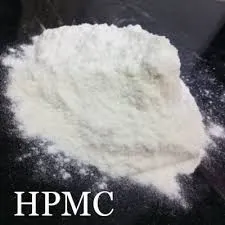
Dec . 10, 2024 11:44 Back to list
use of hydroxyethyl cellulose
The Use of Hydroxyethyl Cellulose A Versatile Polymer in Modern Applications
Hydroxyethyl cellulose (HEC) is a cellulose derivative that has gained significant attention due to its versatile properties and wide range of applications across various industries. HEC is a non-ionic, water-soluble polymer whose unique characteristics stem from its chemical structure, which includes hydroxyethyl groups that enhance its solubility and compatibility with a variety of formulations. This article delves into the properties of hydroxyethyl cellulose, its applications, and the benefits it brings to different fields.
The Use of Hydroxyethyl Cellulose A Versatile Polymer in Modern Applications
In the cosmetic and personal care sectors, HEC is widely used as a thickener, emulsifier, and stabilizer. Its ability to enrich the texture of creams, lotions, and gels allows for smoother application and increased consumer satisfaction. HEC also enhances the moisture retention of products, making it an essential ingredient in hydrating cosmetics. Its gentle nature makes it suitable for sensitive skin formulations, where it acts as a soothing agent while providing a luxurious feel to the products.
use of hydroxyethyl cellulose

From the construction industry standpoint, HEC serves as a critical additive in cement and mortar. Its water retention properties improve the workability of these materials, allowing for better adhesion and consistency. Furthermore, HEC helps to prevent the rapid drying of cement mixes, extending their open time and providing more flexibility during application. This characteristic is especially beneficial in large-scale construction projects, where precision and durability are paramount.
The food industry also exploits the advantages of hydroxyethyl cellulose. HEC can be used as a thickening agent, stabilizer, and emulsifier in various food products, from sauces to dairy items. Its ability to provide a desired viscosity without altering the flavor is invaluable in product formulation. Moreover, being derived from plant cellulose, HEC is generally recognized as safe (GRAS) for consumption, aligning with the growing demand for clean-label products among health-conscious consumers.
In the realm of environmental science, HEC has emerged as a supporting agent in soil stabilization and erosion control. By enhancing soil structure and moisture retention, HEC contributes to sustainable agricultural practices and helps in the reclamation of degraded land. Its biodegradable nature aligns with eco-friendly initiatives, ensuring that its use does not adversely impact the environment.
In conclusion, hydroxyethyl cellulose is an incredibly versatile polymer with applications that span across pharmaceuticals, cosmetics, construction, food, and environmental sciences. Its unique properties, including water solubility, viscosity enhancement, and film-forming capabilities, make it an essential ingredient in many formulations. As industries continue to innovate and seek sustainable solutions, the role of HEC is likely to expand, further solidifying its importance in both current and future applications. Whether in enhancing the efficacy of medications, improving the texture of beauty products, or contributing to sustainable construction practices, hydroxyethyl cellulose proves to be a valuable asset in modern science and technology.
-
Versatile Hpmc Uses in Different Industries
NewsJun.19,2025
-
Redispersible Powder's Role in Enhancing Durability of Construction Products
NewsJun.19,2025
-
Hydroxyethyl Cellulose Applications Driving Green Industrial Processes
NewsJun.19,2025
-
Exploring Different Redispersible Polymer Powder
NewsJun.19,2025
-
Choosing the Right Mortar Bonding Agent
NewsJun.19,2025
-
Applications and Significance of China Hpmc in Modern Industries
NewsJun.19,2025







